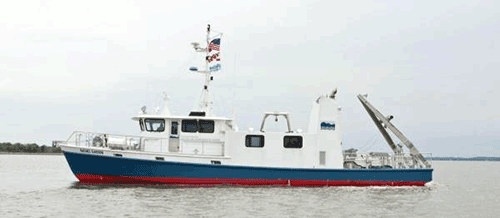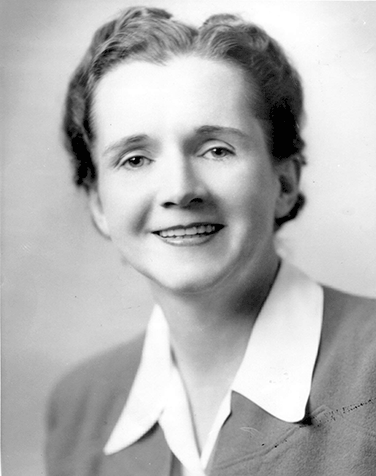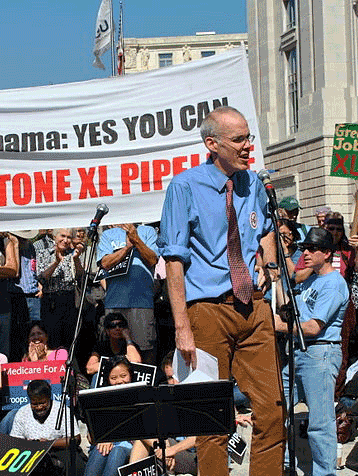Are we having a Rachel Carson spring?
Bill Nuttle · | Applying Science | 1 commentsThis spring brings hopeful signs of an environmental awakening.
I woke up this morning thinking about Rachel Carson. I wasn’t thinking about the author, exactly. It was more to do with the period of the early 1960s when Rachel Carson made a difference - a period of growing environmental consciousness as a prelude to taking action. Could it be that we are now in a similar period with respect to climate change? That possibility has put me in a cautiously optimistic mood.
Rachel Carson had been hovering in my peripheral vision for the last year or so. It began with my rediscovery of 'The Edge of the Sea,' her naturalist guide to the seashore along the east coast of the United States. Then, last summer marked the 50th anniversary of the publication of 'Silent Spring,' which launched the environmental movement in the early 1960s. But, what really forced her into my consciousness was my visit to the University of Maryland’s Horn Point Laboratory, where incidentally the RV Rachel Carson was at dock, to lead a discussion about the knowledge journalist Bill McKibben and his activist role in the growing international movement to combat climate change.

In 'Silent Spring,' Rachel Carson gave shape and substance to a largely unspoken unease about the impact that human activities were having on the global environment. Carson was writing during a time of unbridled optimism in industry and its promise of unlimited progress. However, it was also the height of the Cold War, and people were becoming aware of global hazards, not only from the potential use of nuclear weapons, but also from radioactive substances released into the environment by the development and testing of these weapons. Already recognized as the author of several best-selling naturalist books, Carson collected and synthesized what scientists in the early 1960s knew about how man-made chemicals used as pesticides and herbicides behaved in the environment. 'Silent Spring' issued the first warning to the general public about the hazards to nature, and to people through nature, of the promiscuous use of these chemicals. The wide-reaching environmental protection laws enacted by the United States during the early 1970s – the National Environmental Policy Act, the Clean Air Act and Clean Water Act – are a direct result of a new, environmental movement sparked by Rachel Carson’s book.
Bill McKibben’s work as a knowledge journalist is inspired by Rachel Carson’s example. Like Carson, McKibben was an established author in 1989 when he published 'The End of Nature,' which is regarded as the first book about the science of global warming written for the general public. McKibben and Carson also share a tendency to introversion often found in writers. However, where Carson could not participate in the environmental movement set in motion by 'Silent Spring,' McKibben and his audience are heirs to that movement, and this compels McKibben to move beyond journalism and assume the role of activist.
Different times call for different strategies. McKibben launched the 350.org campaign in 2008 (the number 350 ppm refers to the concentration of carbon dioxide in the atmosphere considered safe from the point of view of climate change; that concentration rose past 400 ppm at the beginning of last month). So far, McKibben has stayed clear of the debate over whether the vast majority of climate scientists are correct in predicting dire consequences unless energy companies reduce the burning of fossil fuels quickly and soon. Instead, McKibben’s 350.org campaign focuses on identifying opportunities for people to make that happen, such as launching campaigns to convince universities to divest fossil fuel companies from their investment portfolios.
Bill McKibben’s effectiveness in awakening the public to action on climate change owes as much to his mastery of web-based niche media for getting his message out as to his command of the facts. McKibben understands well that tweets and blog posts won’t solve the climate crisis. That’s why he takes every opportunity to encourage people to act, get up from their seats and out into the streets. What a great idea for a spring day.
Next Post > Farming and Chesapeake Bay: Initiating a dialog with the Vansville Farmers Club
Comments
-
muthannas 13 years ago
Are We Having a Rachel Carson Spring? http://t.co/kTLP6oX7Rk via @sharethis

